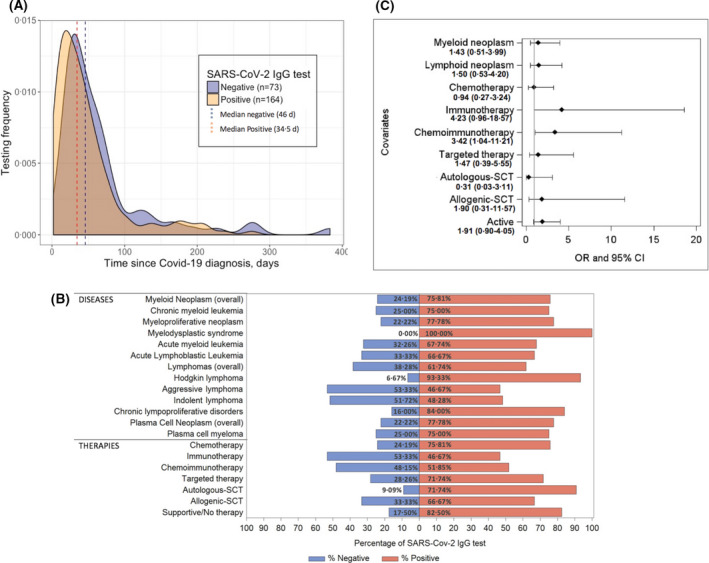Fig 1.

(A) Timing and antibody testing after a positive real‐time polymerase chain reaction (RT‐PCR) test. The testing frequency of patients evaluated showed that those resulting IgG‐negative have been tested later (46 days), than positive (34 days) and some patients were IgG‐positive long time after COVID‐19 diagnosis. (B) Rate of seroconversion according to haematological malignancy and treatment. Serological non‐responders were spread evenly across patients with myeloid, lymphoid and plasma cell neoplasms. Percentages of serological non‐responders and responders are reported. (C) Results of multivariable analysis for identification of factors affecting negative seroconversion for SARS‐CoV‐2 in patients with haematological malignancies. Multivariable logistic regression revealed that chemoimmunotherapy (P = 0·04) and immunotherapy (P = 0·06) were associated with a significant and borderline lower rate of seroconversion, respectively. OR values with 95% CI are reported. Plasma cell neoplasms and no therapy represent the reference for the analysis. SCT, stem cell transplantation; OR, odds ratio; CI, confidence interval.
